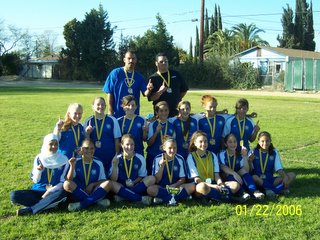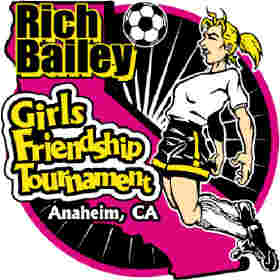We've just finished a splendid weekend in Grand Rapids at the 2006 Worship Symposium. It was delightful to see so many of our friends and colleagues, and the conference itself was, as usual, thought-provoking and inspiring. On top of that it was nice to be away - just Deb and I - while our good friends the Klaasens took care of our progeny.
Debra and I were both presenting at this year's conference. My stock rose considerably in the eyes of some of my worship wonk friends who for the first time this year were introduced to Deb. If I had a nickel for every time someone came up to me and exclaimed how fabulous Deb's presentations were, how insightful her comments, how engaging as a speaker and brilliant as a writer... Well, it would be a nice chunk of change.
My own presentations went well, too -- increasingly so as the weekend progressed. I felt like I really nailed my key presentation by the third time I gave it. I always feel a little insecure about my own material - like half-way through someone is liable to stand up and say: "What you're talking about is so obvious! What kind of fraud are you?!?" But no one did (though there was a grouchy lady in the back row in my second section staring daggers at me the whole time) and in fact, some people had nice things to say.
I basically encouraged worship planners to think about our services as "practice" for life. We do drills in church that isolate particular crucial Christian skills -- confessing sin, attributing beauty to God, lamenting brokenness, praising etc. These are the skills we need as we live the "game" of our Monday-through-Saturday lives.
Borrowing on my experience as an AYSO soccer coach and my membership in a certified Suzuki violin family, I compared planning worship to planning soccer practice and violin practice. There are different ways to work on a particular skill set; some drills work better than others. So how can we modify our worship drills, I asked, so that we are more effectively shaping our wills, ordering our affections, and instilling information? How do we go about shaping our orthodoxy, orthopraxy, and orthpathy?
My section participants come up with some really good stuff: modifications and introductions to common liturgical actions to help focus our work. For example, applying theological filters to our congregational song repertoire to try to give us a healthy song diet; connecting our congregational offering with testimonies about personal and congregational efforts to help the poor and the outsider. We also talked about ways to use liturgical language in real life: At a wake: "The Peace of Christ be with you"; singing "Let us give our thanks and praise, it is right to give our thanks and praise" as a dinnertime grace. When telling a student who is failing your course that not all career doors are open to all people: "This is the Word of the Lord."
Sunday, January 29, 2006
Tuesday, January 24, 2006
Hardware Drives Software: Technology & Music in Worship
Last week I finished writing a piece for Fuller Seminary's 3x-yearly magazine of theology & commentary, Theology News & Notes. This particular issue's theme is the place of music in worship, and I was asked to contribute a piece on the effect of technology on worship music. My thesis, simply put, is a truism borrowed from the computer industry -- hardware drives software:
The article then examines the three aforementioned technologies, pointing out the good and the bad, the helpful and the heinous.
The idea for the piece arose arose out of a seed of an observation about hardware and software and the composition of some contemporary worship songs:
Lest I appear a Luddite here, I hasten to add that in the article I have many good things to say about amplification, projection, and yes, DJ looping software. But I am concerned that we are less discerning than we might be. I challenge you, for example, to visit this website and find a single theological insight brought to bear on the use of technology in worship. Sigh. There's a lot of work to be done.
I have many good things to say about amplification, projection, and yes, DJ looping software. But I am concerned that we are less discerning than we might be. I challenge you, for example, to visit this website and find a single theological insight brought to bear on the use of technology in worship. Sigh. There's a lot of work to be done.
I am quite interested in hearing from my fellow WorshipWonks who read this blog: what effects on worship style/software do you see as a result of the church's adoption/adaptation of certain hardware technologies?
As the church seeks to make the most of certain hardware technology – amplification, lyric projection, and looping DJ software, for example – we can expect that our worship software, i.e. the style of our worship itself, will also change. It may expand in potentially wonderful and creatively enculturated new ways, following the leading of the Holy Spirit. Or it may be narrowed in ways that are hip, but historically, and even theologically, suspect.
The article then examines the three aforementioned technologies, pointing out the good and the bad, the helpful and the heinous.
The idea for the piece arose arose out of a seed of an observation about hardware and software and the composition of some contemporary worship songs:
I have begun to see signs that some songs are being composed, perhaps unconsciously, not just to take advantage of the technology, but bounded by its peculiar limitations. The structure of the songs and the shape of the melodies are being molded to fit the size of the screen and the super-sized words projected onto it. Thus, we no longer get lyrical lines of melody and text; we get textual phraselets and melodic motifs -- mere musical fragments, not bearing repetition, but repeated nevertheless. And repeated.
A good example is the song “My Glorious” by Martin Smith and Steward Garrard....
Lest I appear a Luddite here, I hasten to add that in the article
 I have many good things to say about amplification, projection, and yes, DJ looping software. But I am concerned that we are less discerning than we might be. I challenge you, for example, to visit this website and find a single theological insight brought to bear on the use of technology in worship. Sigh. There's a lot of work to be done.
I have many good things to say about amplification, projection, and yes, DJ looping software. But I am concerned that we are less discerning than we might be. I challenge you, for example, to visit this website and find a single theological insight brought to bear on the use of technology in worship. Sigh. There's a lot of work to be done.I am quite interested in hearing from my fellow WorshipWonks who read this blog: what effects on worship style/software do you see as a result of the church's adoption/adaptation of certain hardware technologies?
Labels:
Faith,
Fuller,
Technology
Monday, January 23, 2006
Movin' on up...

It was another overwhelming weekend of soccer at the Rienstra household.
Jacob's tournament season came to an end as the previously undefeated Destroyers were outplayed on a windy field up at North Hills. Technically, the entire time wasn't outplayed -- we looked like a better overall team. But our opponents had one amazing young fellow, with speed and skilz for days, including a natural left foot. We couldn't find an answer to him. He was like the Kobe Bryant of AYSO soccer on Saturday. Anyway, we're very proud of Jacob, and his development as a player and as a person this year.
Meanwhile, Mia's team has so dominated the AYSO competition in Southern California this year that their coaches are playing with the idea of "going club." This means moving up to the next level of recreational soccer here in California. Club teams require tryouts and certain levels of player and parent commitment and the competitions are a bit more fierce - for example, they don't require that everyone play in a game; it's a step up in many ways.

Thus, the Burbank Fire went this weekend to a Soccer tournament in Anaheim to put themselves up against some Club teams to see whether they had the goods to make it. They entered at the lowest level of competition (bronze), and they were playing in a division of all 14 year olds, when more than half of our team is 13.
So, how did they do? The proof is in the bling-bling. Another undefeated first place medal. They won their games 4-0, 2-1, 4-0, and 2-0. Maybe next tournament they'll start at the Silver division. Or Gold. Or maybe when we get finished this year, they'll have to invent another precious metal division. Plutonium? Californium?
Saturday, January 21, 2006
Alien Transmission from planet Academic Obfuscation
 I was reading David Tracy's Analogical Imagination this week for my Theology & Culture class. It's a book on theological method; Tracy is particularly concerned with the place of theology as a discipline within the broader academy, especially in a radically pluralist world like our own.
I was reading David Tracy's Analogical Imagination this week for my Theology & Culture class. It's a book on theological method; Tracy is particularly concerned with the place of theology as a discipline within the broader academy, especially in a radically pluralist world like our own.He's got lots of good stuff to say about meaning-laden cultural "classics," and especially, as one might guess, about the analogical imagination and how similarity-in-difference is the key to opening up theological insight. Still, I'm not sure in the end he offers anything more than a really, really open-minded and civil tolerance of other viewpoints while maintaining a firmly modernist position on Truth as finally and ultimately revealed in the Christ-event. (Not that there's anything wrong with that).
Anyway, like many University of Chicago folk, he writes with an incredibly specialized vocabulary, in thick convoluted prose that seems intended to obfuscate rather than clarify -- or at least it seems to me. But that may just be me.
The last time I encountered stuff like this, from Don Browning in my Practical Theology class, I was pursuaded that there were two possible explanations for my cluelessness. One was that I was in way over my head, and these guys were writing about SERIOUSLY deep stuff, and I wasn't ready to swim in that end of the pool. The other option was that these guys -- how else to put this -- just can't write. I don't know - maybe they get bonus academic brownie points for not being understood. Maybe you don't get tenure if your review committee comprehended more than half of your latest monograph.
Of course, as anyone learns in grad school, the two options mentioned above (they can't write/I can't read) are not mutually exclusive -- there might be elements of truth in both of them.
So I have found helpful when reading such thick stuff to try to summarize each paragraph in my own words. Fortunately, this was precisely the task before me: to write a précis on Tracy for our class. (By the way, the word "précis" is a perfectly wonderful academicism).
So here are two sample sentences, taken from p. 447, and then my decoding of same:
Tracy:
The need for conversation -- expressed in the differing strategies of confrontation, argument, conflict, persuasion, and above all, concentration on subject matter -- should free the theologian to the fuller contemporary possibility of an analogical imagination. Under the rubric of a comparative and critical hermeneutics, the real similarities and dissimilarities, the continuities and discontinuities present in the contemporary pluralist situation should be allowed their necessary emergence.
Rienstra:
Keep talking. Keep thinking. But ya'll can disagree. It's all good.
(Thanks to my friend Chip Andrus for the southern influenced inflection).
Labels:
Cogitation,
Fuller
Grad school?
 I have received a few comments lately from friends and family wondering why there is never anything on this blog about my schoolwork -- the ostensible reason we came out here to California for two years. I had thought it would be altogether too boring to read about my work for anyone other than a worship wonk like myself. But a friend pointed out that a substantial number of my regular blog readers are in fact worship wonks like myself. (You know who you are). Therefore, I will begin posting with a bit more regularity about my studies here: the books I'm reading, the papers I'm writing, the interns I'm mentoring, the classes I'm teaching and the classes I'm taking.
I have received a few comments lately from friends and family wondering why there is never anything on this blog about my schoolwork -- the ostensible reason we came out here to California for two years. I had thought it would be altogether too boring to read about my work for anyone other than a worship wonk like myself. But a friend pointed out that a substantial number of my regular blog readers are in fact worship wonks like myself. (You know who you are). Therefore, I will begin posting with a bit more regularity about my studies here: the books I'm reading, the papers I'm writing, the interns I'm mentoring, the classes I'm teaching and the classes I'm taking.Anyone with eyes to see will have already spotted the signs of my inevitable mental breakdown -- this should just help everyone to attribute it to the proper source.
Labels:
Fuller
Tuesday, January 17, 2006
Four New Disney Dwarves
Friday, January 13, 2006
Two for Two
 January is a good month for Rienstra men. First Philip got Student of the Month, and now Jacob joins him on the dais. Who knows, maybe Ron will win a bloggie.
January is a good month for Rienstra men. First Philip got Student of the Month, and now Jacob joins him on the dais. Who knows, maybe Ron will win a bloggie.But Jacob certainly deserved the praise. In giving out the award, his teacher remarked how even when he was very ill last month (3 days with a fever over 102), he e-mailed his concern over missing a deadline for a book report project. "This shows how diligent he is about his schoolwork," she said. We might say it shows how the little guy tends toward being obsessive. Not that we'd know anything ourselves about obsessiveness. Anyway, we sure love him.
Saturday, January 07, 2006
Student of the Month
 Philip received "student of the month" honors for his class yesterday in "chapel." The photo shows all the darling first-graders at VCS who received the award this month. (There are four first-grade sections, and each month each teacher chooses two students from the section to be honored.) Students receive the award for obedience, kindness, attentiveness, and hard work in their learning. Philip, though his teacher didn't exactly say this, earned his little certificate for his extraordinary charm and cuteness, brilliant intellect, hilarious sense of humor, etc. I told him that, to me, he was not just "student of the month" but "Philip of forever."
Philip received "student of the month" honors for his class yesterday in "chapel." The photo shows all the darling first-graders at VCS who received the award this month. (There are four first-grade sections, and each month each teacher chooses two students from the section to be honored.) Students receive the award for obedience, kindness, attentiveness, and hard work in their learning. Philip, though his teacher didn't exactly say this, earned his little certificate for his extraordinary charm and cuteness, brilliant intellect, hilarious sense of humor, etc. I told him that, to me, he was not just "student of the month" but "Philip of forever."
Wednesday, January 04, 2006
What I'm Reading/Listening to/Watching
I have been reluctant (and Deb even more so) to follow the blogosphere trend in which personal blogs feature a sidebar containing books one is currently reading, music currently being listened to, TV shows or movies recently watched, etc. It's not that I haven't enjoyed reading such postings on other people's blogs. And it certainly is not that I've been doing no interesting reading/listening to/watching. Yet I've had this gut feeling that such a list would be too self-indulgent for my tastes. On the other hand, self-indulgence is pretty much the sitz im leben of the blog. And while I may not be particularly interested in what someone else is r/l/w -- I may be quite interested in an individual's reflections on what she or he is reading. List: Ho hum. Review list: Hmmm.

So what about a review list done by a professional reviewer, one that looks at both important and more frivolous cultural contributions, one in which the writing itself sparkles with wit and insight... THAT's a promising prospect. I could get fired up about that.
But don't look for it anytime soon here. Instead, look for it here, at Jana's Review Revolution -- where our good friend Jana Riess (a genuine "good friend" -- not a "N.T. Wright" sort of good friend) has just dipped her toe into the blog world, and made quite a splash. I just about cried I was laughing so hard at the review of the BibleZines.
Welcome, Jana!

So what about a review list done by a professional reviewer, one that looks at both important and more frivolous cultural contributions, one in which the writing itself sparkles with wit and insight... THAT's a promising prospect. I could get fired up about that.
But don't look for it anytime soon here. Instead, look for it here, at Jana's Review Revolution -- where our good friend Jana Riess (a genuine "good friend" -- not a "N.T. Wright" sort of good friend) has just dipped her toe into the blog world, and made quite a splash. I just about cried I was laughing so hard at the review of the BibleZines.
Welcome, Jana!
Labels:
Culture,
Friends,
Technology
Monday, January 02, 2006
Floating Floats

Hey, kids! Let's go down and watch the Rose Parade!
Boy, are we glad we didn't.
Even though the parade takes place just over yonder in Pasadena, we were awfully smart to watch it on TV while lounging--warm and cozy and very dry--on our living room couch. Not so wise were the thousands of people who camped out overnight (no tents allowed!) to claim their rain-slicked spot on the sidewalks lining the parade route, or the thousands who paid thousands for their open-air grandstand seats.
It hasn't rained on this parade in 50 years, but today in true Southern California style, it poured buckets. A Pasadena woman was heard earlier claiming that Pasadena is "blessed," and God certainly wouldn't rain on the Rose Parade. Guess God heard that and thought, "Ha! Lady, I take that as a double-dog-dare!" (See Psalm 68:7-10)
You have to admire the fortitude of the parade participants, smiling and waving and tooting their horns despite frequent gusts of horizontal rain. Imagine all the sodden flower petals, all the ruined wind-instrument reeds and pads, all the runny mascara, all that wet, aromatic horse flesh.
Photos courtesy of the fine LA Times photographers. For more, go here.

Overheard...
 While playing their new best Christmas present ever -- a Lego StarWars computer game (incorporating three of their all-time favorite diversions) -- Miriam and Jacob were both playing an allegedly cooperative episode. Jacob was enjoying making his character jump around, doing Jedi acrobatics with his lightsaber. Miriam, however, was concentrating on the goal of this particular scene (defeating a particular bad guy, or discovering some hidden secret or whatever). Jacob's antics were not helping. Thus, she scolded, in her best semi-bullying big sister voice: "Jacob! Stop having fun!"
While playing their new best Christmas present ever -- a Lego StarWars computer game (incorporating three of their all-time favorite diversions) -- Miriam and Jacob were both playing an allegedly cooperative episode. Jacob was enjoying making his character jump around, doing Jedi acrobatics with his lightsaber. Miriam, however, was concentrating on the goal of this particular scene (defeating a particular bad guy, or discovering some hidden secret or whatever). Jacob's antics were not helping. Thus, she scolded, in her best semi-bullying big sister voice: "Jacob! Stop having fun!"We are taking this as a sign that our kids may be too competitive, or that Christmas vacation needs to be over SOON. Or both.
Labels:
Family,
Technology
Subscribe to:
Comments (Atom)













